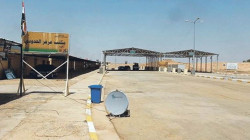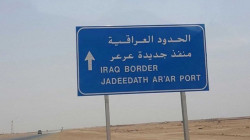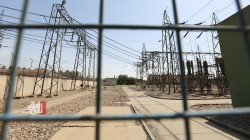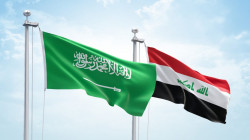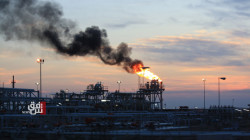The U.S. Is Using Saudi Arabia To Expand Its Influence In Iraq
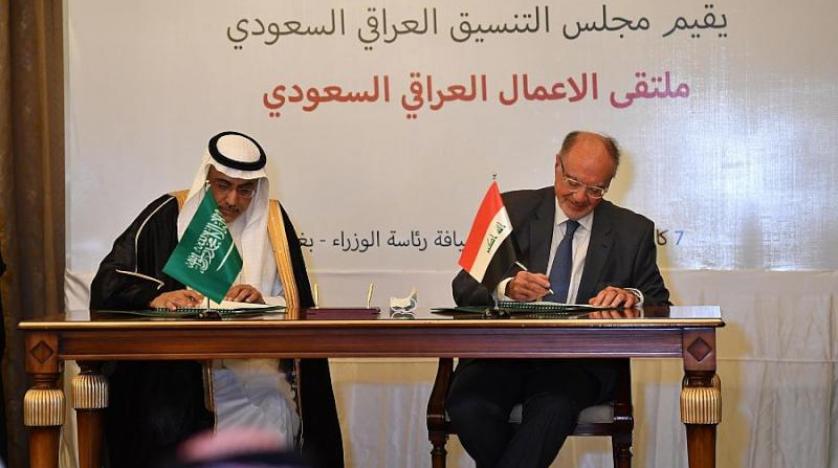
Shafaq News/ Ever since its occupation of Iraq in 2003 began to turn sour, the U.S. has been fighting a rearguard action against Iran cementing its influence in the neighboring state, with the opportunistic assistance of Russia initially and then China as well. This rearguard action initially involved the U.S. giving Iraq scores of billions of dollars in financial assistance, most of which ended up in the offshore bank accounts of various officials and did nothing to halt Iran’s extension of its power into all levels of Iraq’s political and economic infrastructure. Then the U.S. tried linking financial assistance to specific goals, most notably Iraq halting its long-time gas and electricity imports from Iran as a starting point, but this had no effect either, with Iraq recently accepting huge funding on the basis that it would to stop these imports from Iran and then signing the longest deal ever with Tehran to continue them. Now, though, the U.S. is looking to extend an idea that came years ago from its own State Department, which is to continue to give financial assistance to Iraq but critically to tie this into Iraq allowing big U.S. firms to take part in key projects deep in the country’s oil and gas and related infrastructure. An adjunct to this is to secure on-the-ground support from Saudi Arabia, still just about an ally of the U.S. and Iran’s nemesis in the region, which is what is behind last week’s announcement of a series of plans from Saudi to be rolled out in Iraq.
Broadly speaking, Saudi Arabia’s relationship with the U.S. is a lot less secure on both sides than it was before the Kingdom launched the first oil price war in 2014 aimed at destroying or at least severely disabling the then-nascent U.S. shale oil industry. Nonetheless, from the Saudi perspective, the U.S. is proverbially the only game in town as far as halting Iran’s plans for regional dominance go, so much media fanfare was generated that Saudi state hydrocarbons giant, Aramco, is in talks with Iraq’s various ministries for billions of dollars worth of energy, power, water and petrochemical contracts. According to Iraq’s Oil Minister, Ihsan Ismail, one element of this initiative is that Aramco takes an exploration and development deal for gas deposits in the country’s Western Desert. OilPrice.com understands that the provisional agreement for these gas contracts was made over a month ago and that as part of this the Oil Ministry began serious 2D and 3D exploration work in Anbar and the Nineveh at around that time as well. Additional contracts between Saudi and Iraq, Ihsan stated last week, may be done with the Kingdom’s ACWA Power to build clean energy, solar, and water desalination plants in the country. Given that Saudi Arabia itself only very recently let it be known that it was interested in receiving bids from local and international companies for the construction of its own desalination plants, it might be inferred that the ACWA Power-led contracts in Iraq is likely to heavily feature the participation of U.S. companies as well.
In establishing why the U.S. thinks it is necessary to utilize Saudi Arabia in such a way to prise Iraq away from Iran, rather than just do everything itself, it is essential to note two domestic political points. First, the electorally potent brand of ultra-nationalism practiced by the de facto leader of Iraq, radical Shiite cleric Moqtada al-Sadr, is particularly fierce when it comes to the U.S., as he spent years leading a bloody counterinsurgency against the U.S. ‘occupation’, as he sees it. Although al-Sadr clearly knows that the U.S. is behind Saudi Arabia’s sudden willingness to invest in Iraq, he can still say to his supporters in the ‘Sairoon’ (‘Marching Forward’) faction that the money is coming from a fellow Arab state. In addition, prior to the 2018 parliamentary elections, al-Sadr visited the Sunni Islam state of Saudi Arabia, and also long-standing U.S. ally, the UAE. Second, there has been a sea-change in the past three or four years in particular in the outlook of at least one of the sons of the highly-influential Hakim family in Iraq – to wit, the middle son, Ammar. In direct contrast to the pro-Iranian stance of his family, led by his iconic father, Abdul Aziz al-Hakim, who headed the Supreme Islamic Iraqi Council before his death in 2009, Ammar al-Hakim withdrew from the Council in 2017 and established a new political party, the National Wisdom Movement. This party was, and remains, based on non-sectarian values and, as al-Hakim put it at the time: “To ensure democratic elections that include all of Iraq’s spectra, away from sectarian and national polarization and embark on a new political horizon because Iraq should be at peace with itself.”
Running in tandem with the initiatives from Saudi Arabia, are the swathe of new deals coming from the U.S. itself. These most recently include deals done or pending for Schlumberger and Halliburton, analyzed here by Oilprice.com, and before that, a series of on-again and then off-again deals connected to developing Iraq’s gas sector, and specifically aimed at ending the country’s reliance on Iranian power, analyzed here by Oilprice.com. Whether any of these will ultimately succeed in moving Iraq away from Iran, and China and Russia, remains to be seen, although historical precedent would argue not. In fact, the success of the current U.S. initiative in Iraq is inversely correlated to whether or not it strikes a new nuclear deal with Iran. As it stands, with no deal, Iran’s ability to influence Iraq is severely limited by its lack of dollars or gold to ‘encourage’ the pro-Iranian activities of Iraqi politicians and to pay pro-Iranian paramilitary groups in the country. With a new nuclear deal though, Iran would see a rapid inflow of cash, the flow of ‘influence money’ would resume into Iraq, and the U.S. would again become ostracised.
Source: oilprice.com
